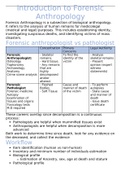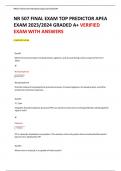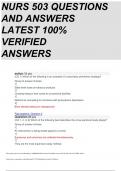Exam (elaborations)
School Psychology Summary & Exam Questions
- Course
- Institution
Ready to nail your School Psychology exam? My summary and 56 open-ended practice questions make studying easy and effective, covering all the key concepts and helping you think deeper. Perfect for boosting your confidence before the exam.
[Show more]








